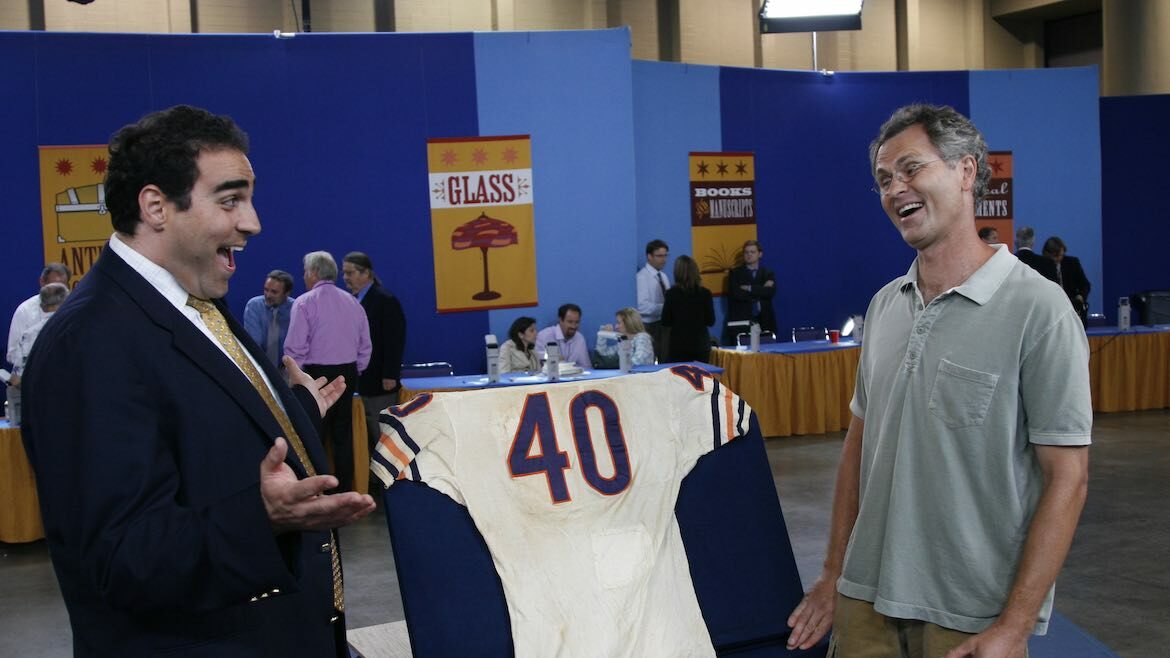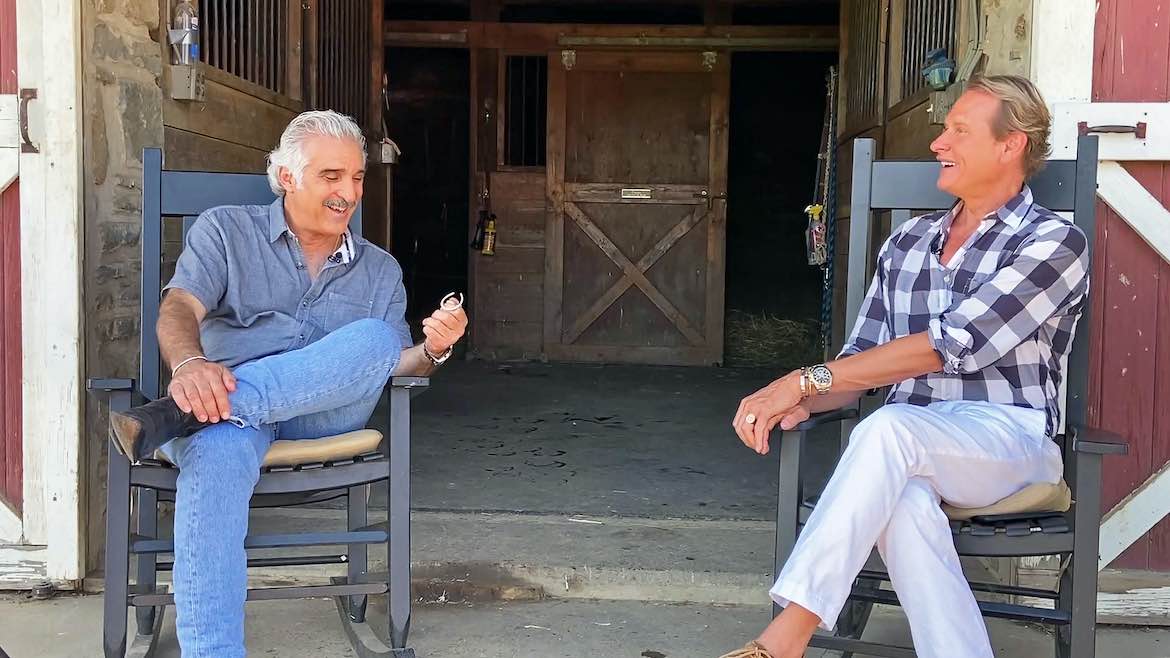Wednesday roundup: Antiques Roadshow lands million-dollar appraisal; more radio stations eyeing mergers

Leila Dunbar appraises an an archive of early Boston baseball memorabilia for $1 million Aug. 9 in New York. (Photo: Meredith Nierman, WGBH)
• Antiques Roadshow, WGBH’s public TV icon series currently on its annual summer production tour, scored a rare million-dollar appraisal in New York, reports The Associated Press. A cache of early Boston baseball treasures “is the largest sports memorabilia find in the 19-year history of the series,” EP Marsha Bemko said in Monday’s announcement. The baseball cards and handwritten letter date to the early 1870s and include a signature of Red Stockings player Albert Spalding, who went on to found the Spalding sporting goods empire. The show will air in 2015 on PBS. The last million-dollar appraisal on Roadshow, in 2009, was for a Chinese jade collection later sold for about half that figure.
• The University Station Alliance has released results of its 2014 Local Economic Impact survey of public radio stations, which polled 161 responding stations about possible mergers or sales. The number of stations considering multistation merger collaborations increased 4.5 percent over last year. Meanwhile, a third of managers surveyed said they planned to retire or change jobs within the next six years.
• Glenn Greenwald, the First Look Media writer and editor who brought forward Edward Snowden’s leaks about the National Security Agency’s data collection practices, accuses NPR of “laundering CIA talking points to make you scared of NSA reporting.” In a Tuesday post, Greenwald and co-author Andrew Fishman take issue with an Aug. 1 Morning Edition report by counterterrorism reporter Dina Temple-Raston on a tech firm’s claim that Snowden’s leaks have hurt the U.S.’s counterterrorism efforts. Greenwald and Fishman criticize Temple-Raston for failing to disclose that the source of the claim, Recorded Future, is funded by the CIA and has applied to do business with the NSA. In a 2012 story, Temple-Raston pointed out these government ties.
“It’s hardly surprising that these kinds of firms, linked to and dependent on the largesse of the U.S. intelligence community, produce pro-government tripe of this sort,” Greenwald and Fishman write. “That’s their function. It’s the job of media outlets to scrutinize these claims, not mindlessly repeat and then glorify them as NPR did here.”
• Meanwhile, First Look has experienced growing pains in its first nine months of operation, according to the Columbia Journalism Review. The site has scaled back on ambitious plans to launch a fleet of digital magazines and is instead focusing on a small handful of publications on topics such as national security and finance. Founder Pierre Omidyar has not yet revealed specifics of how the operation intends to generate revenue. Yet First Look continues to hire staff; editor Matt Taibbi announced two new staffers Tuesday.
• Bruce Theriault, s.v.p. of journalism and radio at CPB, spoke with Media Impact Funders about public media’s Local Journalism Centers and the importance of local news collaborations. Five LJCs are developing units for producing high-quality, short-form videos, notes Theriault, who also points out that Southern states “are lagging a bit” in CPB investments.





Potential mergers of public radio stations is a slippery slope to minimal local content. Everybody has seen what has happened to local commercial radio. If there is a local show, it is usually in the morning. The remainder of the day is syndication.
So, what happens at 7:00 PM when a tornado strikes your town. Who will tell you about where you can go to be safe? Or what happens when the blizzard hits a midnight. Who will tell you what’s open> The answer to both in a merger and consolidation radio universe is NO ONE.
Because of mergers and consolidation local radio is really nothing. Mergers and consolidation in public radio will make it almost useless. All NPR stations could simply be translators for NPR without local content. Isn’t local radio supposed to be local?